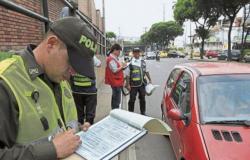Havana, June 26 (EFE).- The Ministry of the Interior (Minint) of Cuba estimated this Wednesday in a press conference that the new Migration Law that will be processed by parliament this July will affect 1.3 million Cubans residing abroad .
This legislation represents a notable change because it would allow all Cubans who have been abroad for more than two years to retain their citizen rights and property on the island, something that until now depended on the renewal of their resident status abroad every two years. .
The regulations, published as a draft on June 18 along with the Immigration Law, establishes the new category of “effective immigration residence” and eliminates the limit of two years abroad for a Cuban to lose his residence, explained the head of Identification , Immigration and Foreigners of the Minint, Mario Méndez.
Current legislation provides that any citizen who spends more than 24 uninterrupted months abroad without processing an extension of his stay is considered an “emigrant” and loses not only rights such as voting, healthcare or education, but also his property.
Méndez assured that in the new regulations “there is no limitation of rights” and stressed that they are made “to continue uniting Cubans” and with the “country’s will to unite” its citizens.
The head of Identification, Immigration and Immigration clarified that the law is not retroactive, so it only affects those people who emigrate once the new law comes into force.
The regulations must be approved in the next session of the National Assembly of People’s Power (ANPP, unicameral) in July, where drafts do not traditionally undergo major modifications. If given the green light, it would begin to be implemented in 2025, he added.
The preliminary draft will be processed along with five others, among which those on Citizenship and Immigration stand out due to their relationship with the immigration issue.
Thus, the immigration law establishes the immigration categories of foreigners and mentions that those born on the island who renounce Cuban citizenship, once said renunciation is approved, will be “considered foreigners” for all purposes.
Regarding citizenship, the regulations on the subject published the day before provide for the deprivation of that right to Cubans abroad who carry out “acts contrary to the high political, economic and social interests” of the island.
Likewise, it empowers the president of the country and the Minister of the Interior as “the competent authorities to resolve administrative files on the acquisition, loss, deprivation, renunciation and recovery of Cuban citizenship.”
The immigration issue is key in Cuba, which after repeated waves of migration in recent decades has seen hundreds of thousands of citizens leave the country in the last three years, most for economic reasons, although some also for political reasons.
The Cuban diaspora has an important political and economic weight on the island, whether due to its influence in US politics, the remittances it sends to the country or its ability to commercially and financially support the emerging private sector.






